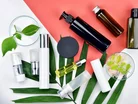Nestlé looks to sell its Skincare unit as part of its long-term value creation strategy

As part of a regular strategy review, Nestlé’s Board of Directors assessed the business’ Nutrition, Health and Wellness strategy. Noting that its strategic direction focuses more on food, beverage and nutritional health products which will accelerate its long-term value creation strategy, the company have announced its decision to sell its Nestlé Skin Health unit.
Originally launched in 2014 as part of joint partnership, Galderma, following its ties with L’Oreal, the unit provides science-based solutions to meet the specific skin health needs of healthcare professionals, patients and consumers, Nestlé Skin Health offers a range of leading medical and consumer brands through three complementary business units, Epiduo and Soolantra in Prescription, Restylane and Azzalure in Aesthetics, Cetaphil and Proactiv in Consumer Care.
Headquartered in Lausanne, Switzerland, the unit employs over 5,000 people across 40 countries. It benefits from state-of-the-art R&D capabilities and manufacturing facilities spread worldwide. Nestlé Skin Health had sales of approximately US$2.8bn in 2017.
“Sharpening our strategic focus on Nestlé’s core food, beverage and nutritional health products offers the best opportunity for long-term profitable growth and is fully in line with the pursuit of our company’s purpose,” explained Paul Bulcke, Chairman of the Board.
“As a consequence, our Board is convinced that exploring strategic options for Nestlé Skin Health is in the best long-term interest of this business and Nestlé shareholders.”
See also
- Fitbit lunches its new platform Fitbit Care
- Cigna’s $52bn acquisition of Express Scripts is approved by the Department of Justice
- Accenture and Merck partner with Amazon Web Services to launch a new platform to promote innovation
“Nestlé Skin Health has made significant progress under its new leadership team over the past 2 years,” added Mark Schneider, Chief Executive Officer.
“The company has developed convincing growth strategies for each of its business units and regained a competitive cost structure. Now is the right time to explore the best ownership structure for Nestlé Skin Health and to consider ways of taking it to the next level.”
This science-driven nutritional health business, which focuses on medical nutrition and consumer health products, forms an integral part of Nestlé’s Nutrition, Health and Wellness strategy.
Earlier this year, the company bolstered its nutritional health care portfolio through the acquisition of Atrium Innovations, complementing its own line of nutritional products such as the well-known brands BOOST, Nutren, Meritene and Peptamen. Nestlé will continue to allocate significant resources to this growth area, which is fully in line with the Group’s strategic focus.
This week has been a busy one for the company. In line with its long-term strategy, Nestle has sought to bid for GlaxoSmithKline’s nutritional business, Horlicks of India, alongside Unilever and Coca-Cola. The company sold its UK-based Horlicks arm to Aimia Foods this year. The company is also set to sell its Gerber Life Insurance business for $1.6bn.



